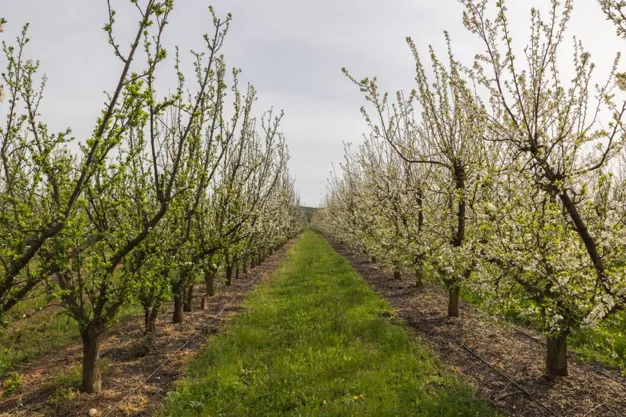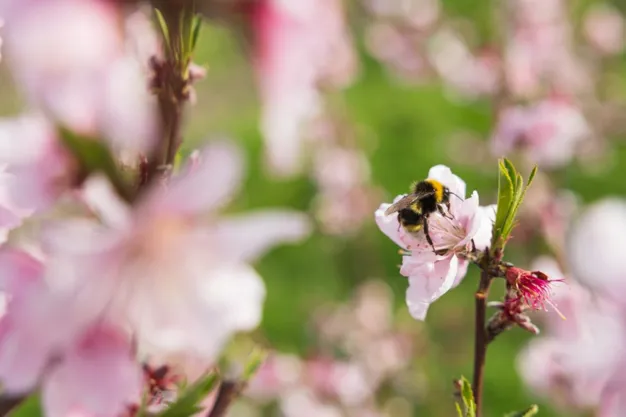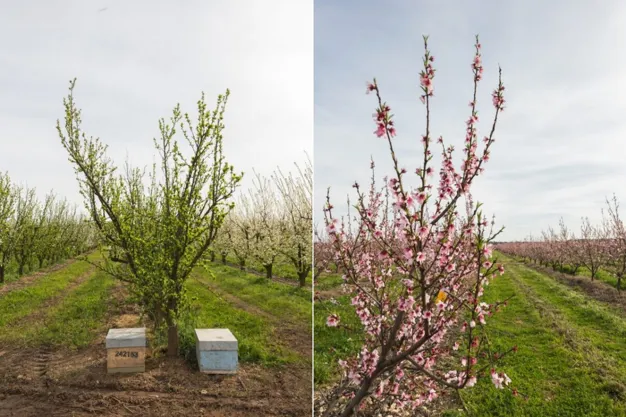The Portuguese stone fruit season starts early and lasts until November, as the production area is spread from north to south, says Tomás Ferreira Head of Commercial, Logistics and Marketing for Portuguese fruit exporter Granfer: "Our stone fruit season runs from May until November. We have a long season as we produce the stone fruits in Alentejo and Cova da Beira in Portugal, as well as in Extremadura in Spain. For the Portuguese production, this means it is done in both in the south of Portugal as well as in the north. The north is kind of a hot spot when it comes to the production of stone fruit in Portugal, so most of the production comes from there. We export apricots, peaches, nectarines, plums, but also summer pears during this time. But no matter where the production is, it's always 200 or 300km from the packhouse, which is relatively close."
The trees have started flowering early due to warmer weather in the past weeks. According to Ferreira, this poses risks for the production in the north of Portugal. "It's nearly spring and the warmer weather has definitely had an impact. It was warm three weeks ago, which caused early flowering. The process is going well, but it does come with risk. Although the south is relatively safe from any frosty weather, the north can still be impacted. Frost would damage the buds and trees. So it's not really getting easier to produce stone fruits in the current climate. It isn't viable to invest in anti-frost measures for stone fruit at this time, so we can only wait and see what the weather will bring us."

"What we can do to mitigate these issues is find and grow more resilient varieties, that can withstand colder weather. Another option is to produce the stone fruits on elevated landscapes, to avoid the frosty temperatures that are found lower down. All in all, while the production of stone fruits is becoming more of a challenge, ensuring sufficient volumes and the right quality that meet the clients' expectations is our upmost priority, and the reason we keep innovating."
Weather isn't the only challenge that stone fruit growers in Portugal are facing, Ferreira explains: "We have to compete with different products for acreage in terms of increasing our production. So when investors look to spend money, they will go for other, less labour-intensive products, like almonds. So it's up to us to adapt to the pace of the consumer, who is becoming more demanding in terms of quality. Of course the cost of production is also high, so that's another thing to deal with."

Granfer has made several investments to move their business forward, including a big investment into their logistical side of the company. "We've made several investments to our business. A big one is the investment into our logistics. Now, local producers can make use of our logistical services, which in turn makes us a very interesting company to sell their produce to. We also have upgraded our packhouse, and will be upgrading our main office in six months, in order to meet the expectations of our clients, as well as upgrade our workers' conditions."
Ferreira feels that produce from Portugal is gaining respect and demand in the European markets. "I feel Portugal is becoming a more popular supplier for European markets. Clients know we adhere to the safety standards, care about the quality of our produce and overall have a high level for exports. Our offering has become quite diverse and clients are becoming more aware of the potential for Portugal's produce in general. We currently export to retailers and importers in Germany, France, Italy and the UK, but the local market of Portugal remains very important to us. Brazil is also a key market. Looking at potential for the future, we feel the Eastern Europe, the Baltics and Scandinavia is looking very promising, as they are very interested in quality produce, compliant with the highest food safety and farmed locally."

Granfer will be showcasing their new rebrand as well as new packaging during Fruit Attraction in Sao Paulo "We are proud to be recognized for our commitment to sustainability, fair labour practices, and strong corporate governance, as evidenced by winning the 2023 Exame ESG Award for SMEs. Exame is a magazine issued in Portugal, also issued in other Portuguese-speaking countries such as Brazil, Angola, and Mozambique. We're excited to be showcasing a newly rebranded image and new packaging at the very first edition of Sao Paulo Fruit Attraction 2024. The aim is to develop partnerships with our key retailer and wholesale clients and to expand our stone fruit and also top fruit programs throughout Brazil, a market that has always valued high-quality Portuguese produce," Ferreira concludes.
For more information:
Tomás Ferreira
Granfer
Tel: +351 910 200 993
Email: [email protected]
www.granfer.pt
